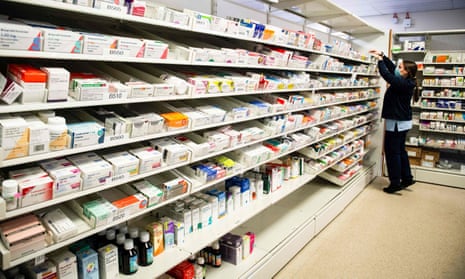A shortage of cough and cold medicines in the UK is a result of ministers’ “lack of planning”, according to pharmacy leaders.
Rishi Sunak’s Conservatives were accused of “being in denial” as supply chain problems worsen, with pharmacists reporting shortages of once-common cold and flu medicines.
The Association of Independent Multiple Pharmacies said throat lozenges, cough mixtures and some painkillers are among the affected medicines, after issues with the supply of antibiotics and HRT last year.
“Pharmacists are struggling to obtain the very basic, most common cold and flu medicine,” chief executive Leyla Hannbeck told the PA news agency. “This isn’t just the branded medicines, it is also simple things like throat lozenges, cough mixtures or painkillers – particularly the ones that are soluble.
“The demand has been high because this season we’ve seen higher cases of colds and flu and people are obviously trying very hard to look after themselves and making sure that they use the relevant products to manage the symptoms.
“And that has led to a shortage of these products in terms of us not being able to obtain them.”
The UK Health Security Agency has warned that winter illnesses including flu and Covid continue to circulate at “high levels”. As a result, officials urged people to keep children with a fever off school and urged unwell adults to wear face masks to stem the spread of infections.
Hannbeck added: “Unfortunately part of that is a lack of planning by officials in terms of foreseeing the problems and trying to plan in advance to sort it.
“For example, with cold and flu, we knew some months ago cases were going up and it was anticipated that there would be higher demand for these products.
“So you would have thought that plans would have been in place in terms of managing this with regards to liaising with manufacturers and getting the products in.”
Not being able to access self-care products in pharmacies is leading to more pressure for the NHS, she added.
Niamh McMillan, Superdrug pharmacy superintendent, said: “We are currently experiencing exceptionally high demand for cold and flu products.
after newsletter promotion
“If your usual products are unavailable and you’re looking to relieve your symptoms, our pharmacists can offer advice on the most appropriate pain relief and decongestant products to help you.”
Meanwhile, a spokesperson for Boots added: “General availability of cough and cold relief at our stores across the UK is good, and enough to meet current demand.
“There may be temporary shortages in some stores of a particular brand, eg Lemsip, but there will almost always be suitable alternatives available.”
The health minister, Will Quince, met with Hannbeck on Wednesday to discuss issues in community pharmacy.
A Department of Health and Social Care spokesperson said: “We are aware of reports of issues with the availability of some branded cold and flu medicines. These appear to be temporary and localised, but we are engaging with suppliers to investigate and help ensure that over-the-counter cold and flu medicines remain available.”
